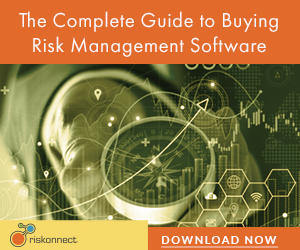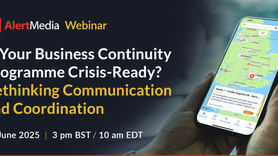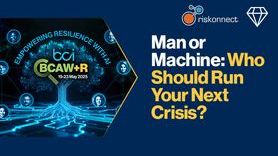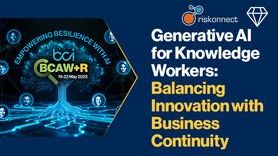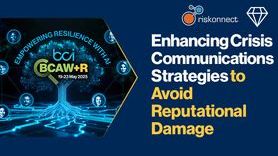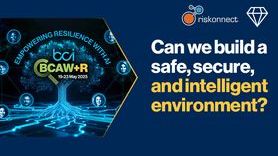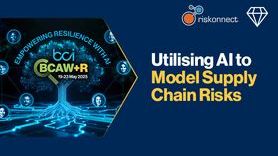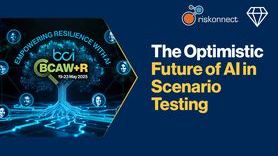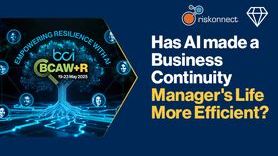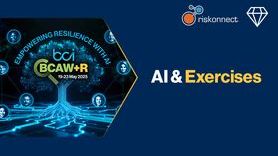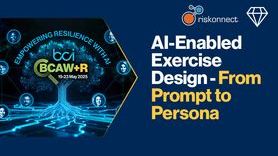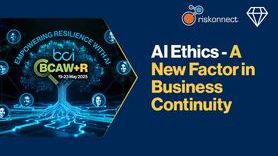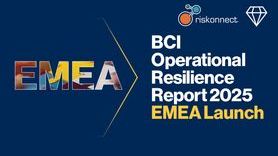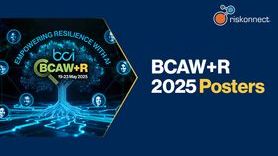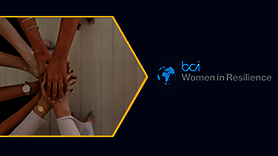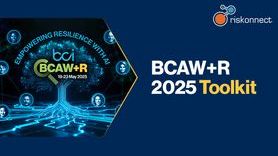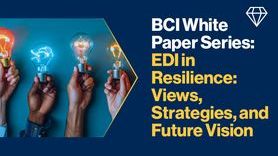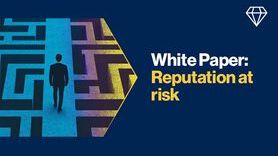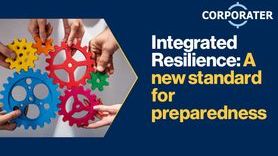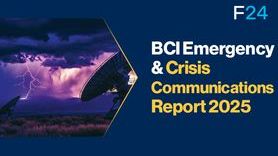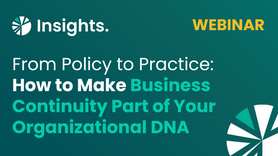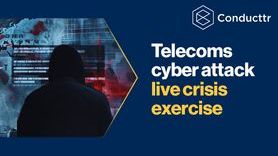In Conversation with Marie Dufort, Assistant Vice President of Operational Risk
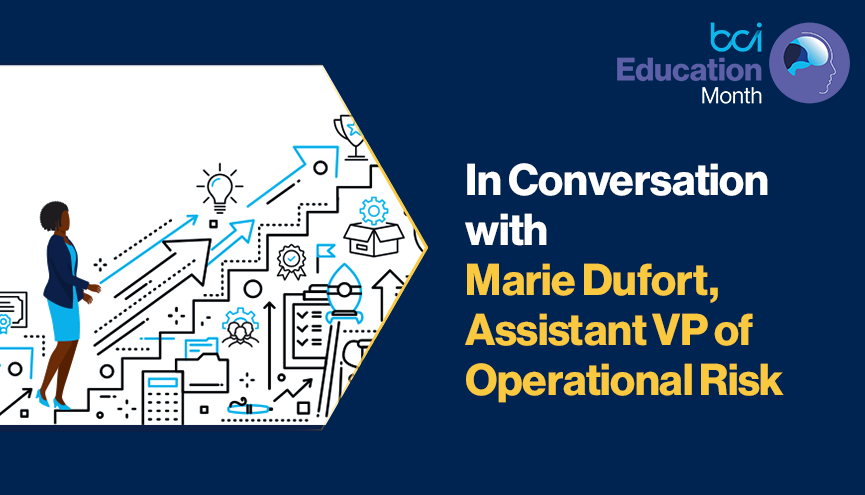
In this interview, the BCI had a conversation with Marie Dufort, Assistant Vice President of Operational Risk at Butterfield Group (Canada), about her experience of entering the Business Continuity (BC) and Resilience sector and discussed her advice for others who are looking to enter the industry.
How and when did you start working in the BC and resilience sector?
I started working in the BC/Resilience space in 2016. I was a marketing coordinator for St. John Ambulance and I was asked to attend a local conference in Vancouver called the Emergency and Preparedness and Business Continuity Conference (EPBC). My job was purely to manage my company’s booth in the hopes of generating interest in our first aid courses and products. On my break, I attended some of the presentations and learned about Emergency Preparedness and BC.
The topic seemed really interesting, so I worked up the courage to introduce myself to the speakers. One of the speakers in particular retained my information and told me there was an open position on their board (EPICC - Emergency Preparedness for Industry and Commerce Council). I signed up right away and spent the next year assisting the board and learning about the industry. Within a year, I was offered a position at a big four firm, focusing on risk engagements because the speaker I had met was also a Director at this firm.
What was your background and studies?
I obtained a Communications Degree from Simon Fraser University. Later on, I obtained my ABCP and CBCP, an ISO 22301 Lead Auditor designation, as well as a Lean Six Sigma Certificate and am currently pursuing a designation in Risk Management (Certified Risk Manager).
What have you learned/what skills have you developed by working in BC & Resilience?
Some of the skills I have picked up and developed are:
- Sound risk management principles
- Networking skills
- The ability to negotiate and facilitate with senior leaders
- Strategic and long-term planning (implementing BC software or maturing a program over multiple years)
- Process improvement
With an ever-expanding catalogue of risks and threats, how important is training and education in BC?
Training and education have been foundational for my personal growth in the industry. To practice in the field, having basic BCM knowledge is where we should all start. Unfortunately, I find that BCM training isn’t always updated/refreshed as we face large-scale events, so attending industry events, reading published articles and connecting on LinkedIn is what I found to be the best way to stay on top of changes in the risk landscape.
What’s the importance of having a mentor, a colleague or someone in the industry that you look up to or that is inspiring your career?
Couldn’t think of anything more important. I am in this field because someone took a chance on me. I have multiple mentors and many colleagues I regularly keep up with. They have been great sources of inspiration and knowledge throughout my career and I recommend this, along with certification, as “quick wins” new entrants to the field should prioritize.
What are the pathways/opportunities available for young professionals that choose a career in BC & Resilience?
For those interested in exposing themselves to a wider-range of risks outside of pure BC, Operational Risk is an option to consider. It’s an opportunity to become a generalist and involve yourself throughout the risk management lifecycle - from identification all the way to reporting. Along the way, you may find a risk type that you really enjoy and want to dive into in more depth.
Consulting is also something I recommend to new entrants. The pay isn’t always good and the hours can be demanding, but the growth is accelerated and the exposure and variety of projects is unmatched. A few years in consulting is always appealing to future employers and teaches you many skills – negotiation, facilitation, budgeting and relationship management are just some that come to mind.
What can young professionals do to prepare themselves when joining this field from a different industry? What are organizations looking for from young professionals joining this field?
- Obtain an entry-level certification in BCM
- Connect with people in the industry and introduce yourself to risk professionals within the companies you are trying to apply to
- Volunteer at BC events and boards/committees
- Re-brand your social media presence to demonstrate your new expertise
Organizations typically seek juniors who have 2-3 years’ experience in risk management, who are post-secondary educated in a business or related field of education. They also typically view certifications as an asset and seek individuals who are strong in writing, data/information analysis and those who can juggle competing priorities and deadlines.
What advice would you give to those that are thinking of starting a career in the BC/Resilience industry?
Don’t be shy to introduce yourself to people in the industry (either online or via LinkedIn), be vocal online and participate in forums and seminars/webinars. Get certified and make a point to introduce yourself and your aspirations to your teacher (they often tend to be well connected).
Is there anything else you want to share about your experience joining the BC/resilience sector?
Many professionals in the field are nearing retirement and there will be a shortage of professionals to replace them. This is a great opportunity for new entrants and the topic is at the top of the agenda for many professional associations.
Learn more about Education Month 2022:
To be the first to know about BCI News and more follow us on LinkedIn here, or on Twitter @TheBCEye


